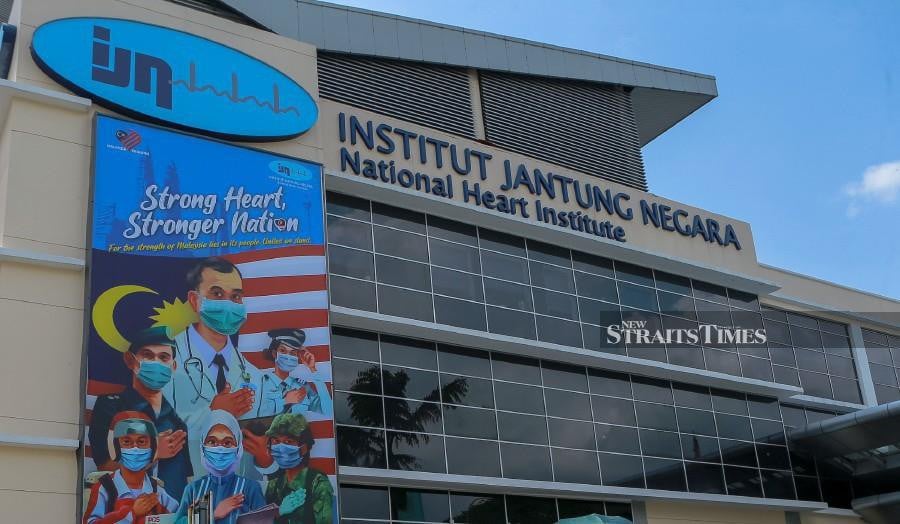KUALA LUMPUR: The National Heart Institute (IJN) has unveiled a groundbreaking medical procedure that will revolutionise the treatment of aortic stenosis, a common heart condition.
Its chief executive officer, Datuk Dr Aizai Azan Abdul Rahim, said aortic stenosis was commonly observed in the elderly and occurs when the aortic valve narrows, obstructing blood flow from the heart to the body.
"Severe cases can result in symptoms such as chest pain, fainting, rapid heartbeat, and shortness of breath.
"Until now, surgical valve replacement has been the primary approach for treating severe cases. However, open-heart surgery is not suitable for all patients, particularly the elderly or those with comorbidities such as heart failure, lung disease, diabetes or renal disease."
To address this issue, IJN has introduced a revolutionary procedure that utilises the latest-generation device for transcatheter aortic valve implantation (TAVI) called Navitor, developed by Abbott.
Dr Aizai explained that Navitor aims to improve existing TAVI procedures by reducing the risk of blood leakages around the implanted valve.
"Unlike traditional open-heart surgery, TAVI offers a minimally invasive alternative with faster recovery rates and reduced pain.
"The procedure involves inserting a replacement valve through a catheter, which is threaded through a small incision in the groin via the femoral artery," he said.
On May 12 this year, two patients underwent the Navitor TAVI procedure, making IJN the first healthcare provider in Malaysia to successfully perform this innovative treatment.
IJN senior consultant cardiologist Datuk Dr Shaiful Azmi Yahaya emphasised that the unique design of Navitor focuses on precision and improved patient outcomes.
He said the advanced features of Navitor enable doctors to have better access to their patients, particularly for younger or smaller patients with intermediate and low risk who may require future coronary interventions.
"Furthermore, the Navitor device comes with the smallest profile, allowing doctors to use smaller blood vessels for access, measuring 5mm and above," he added.
Currently, IJN offers four types of TAVI systems tailored to meet the specific needs of aortic stenosis patients.


